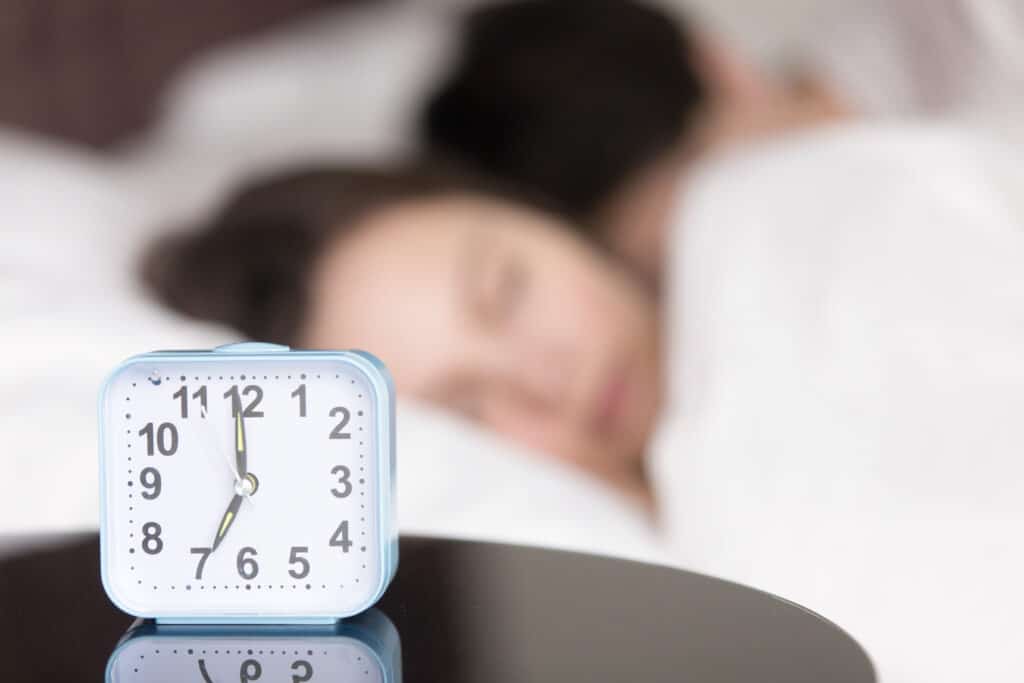As the holidays get closer, the days are getting shorter and sunlight becomes more scarce. For some people, the winter time is not only a time of celebration but also a time when they may notice changes in their mental health. A case of the winter blues is normal for many people, but can it be avoided? Is it something more than feeling down for a few months? Let’s take a look at how exercise can help us to feel our best during the winter and stay on top of our mental health.
What is Seasonal Affective Disorder?
Sometimes the winter blues are a simple case of cabin fever. Being cooped up inside isn’t fun, but if you live in a place buried in the snow sometimes there’s nothing you can do. However, the changing of the seasons has a more profound effect on some people’s mental health.
About 5 percent of the US experiences Seasonal Affective Disorder (or SAD), a form of depression defined by its “seasonality” and happening only during part of the year. While it can happen during the spring and summer, most commonly it will onset during the winter months.
Seasonal depression is attributed to the lack of sunlight in the shortening winter days, as well as people spending a higher percentage of daylight hours inside. These shorter days can also negatively influence your circadian rhythm, which affects your sleep quality and energy levels.
Symptoms of SAD
The symptoms of SAD mimic those of other types of depression, like Major Depressive Disorder, but are defined by their seasonality. These include:
-Loss of interest in activities and hobbies
-Feelings of hopelessness
-Decreased energy levels
Additionally, those struggling with Seasonal Depression in the winter will find that they have trouble oversleeping and might experience appetite changes, particularly a craving for carbohydrates. Summertime seasonal depression conversely will often include a noted lack of appetite, insomnia, and weight loss.
Treatment for SAD
Treatment for SAD can come in multiple forms. Commonly, light therapy is used where patients will spend time sitting in front of a light box that mimics natural sunlight. Additionally, doctors might prescribe anti-depression medication like bupropion for seasonal affective
disorder. As a Selective Serotonin Reuptake Inhibitor (or SSRI), the medication increases levels of serotonin in the brain, a neurotransmitter linked to mood and sleep.
How Exercise Can Help Seasonal Affective Disorder
Exercise is also an essential part of managing SAD. There are many benefits to both your physical and mental health from staying active, such as increased blood flow and reduced stress. Many of these benefits are great for staving off those times when you feel blue over the winter.
Promotes Healthy Brain Chemistry
When you exercise, your brain releases chemicals as a reward. These chemicals include endorphins, which can increase feelings of pleasure, block pain, and lift your mood. Additionally, your body will also produce dopamine (the “reward chemical” in your brain), natural
endocannabinoids, norepinephrine, as well as serotonin. This combination of neurochemicals causes what we call the “runner’s high.”
A runner’s high can be one of the best mood lifters when struggling with seasonal depression. For those struggling with SAD, it can make a big difference. These chemicals are released with moderate amounts of exercise, and additionally, those who work out have higher
regular levels of serotonin than those who don’t. In this way, exercise can be working like an antidepressant medication on its own.
While cardio can be more effective as a mood lifter, these benefits can be found in doing almost any kind of exercise. So if lifting weights is your thing, or you’re snowed into your home gym, you can still take advantage of the mood benefits of exercise.
Boosts Your Immune System
Flu season is no joke; during the winter season, more people seem to be sick with something. Especially in the wake of the COVID-19 pandemic, taking your health seriously is essential. Working out actually helps to boost your immune system in a number of ways.
Studies have shown that those who exercise regularly get sick less often and are also better equipped to fend off illnesses they contract. Regular, moderate-to-vigorous exercise increases the circulation of immune cells, like antibodies and white blood cells, throughout the body. This allows your immune system to detect and fight illnesses earlier. Additionally, the lowered stress levels, improved sleep, and anti-inflammatory benefits of exercise all make it easier for your immune system to work. While it’s no replacement for your flu shot, it can certainly make staying healthy over the winter a little easier.

Improves Your Sleep
The shorter days and longer nights do your sleep schedule no favors. Your circadian rhythm is the body’s internal clock that tells you when it’s time to sleep. It uses external factors like sunlight and temperature. Throw a 4 p.m. sunset and daylight savings into the mix, and it’s no wonder you can feel yourself waking up on the wrong side of the bed during the winter.
Getting quality sleep is important and can greatly help your mental health. Fortunately, staying active makes getting a good night’s sleep easier than ever. Our neurochemical friends can help to promote a better night’s sleep, as the dopamine and serotonin released can improve sleep quality. On top of that, feeling tired after a workout isn’t a placebo! Vigorous activity can help your “sleep drive” to make you more tired, and improve your sleep quality. So push yourself to get those extra few reps in when you’re tired. They can do wonders for your sleep!
Gets You Outside
While it may be difficult to want to go outside in below-freezing temperatures to get some exercise, being outside is essential for treating seasonal depression. There are only a few hours of sunlight in the day, so take advantage of them while you can! Sunlight is one of the main ways our bodies produce Vitamin D, an essential nutrient that people with SAD are often deficient in. A jaunt in the cold can also break up your cabin-fever, and perhaps help you feel gratitude for the warmth inside!
The Importance of Exercise
While these are not the only health benefits of exercise, they are all important for staving off seasonal depression. Combining different kinds of exercise over the winter can help you to reap all the benefits they have to offer. Cardio workouts, like running (or ice skating while it’s cold!), are great to do outdoors and get you in the sun. Working in some anaerobic workouts, like weight lifting, are great for your immune system. Both kinds of exercise can help your sleep schedule, as well as healthy brain chemistry.
Some kinds of exercise are better than others, so utilizing a comprehensive workout plan can help you fully fend off the winter blues. Integrating different types of HIIT, aerobic, and anaerobic exercises into your workout will give your body the tools it needs this winter.
Stay Strong Together
Jefit was named the best strength training app by Sports Illustrated, Esquire, GQ, Men’s Health, Greatest, Forbes Health, and many others. We offer a community responsible for more than 92,000,000 workouts to date! The app, which recently passed 10 million downloads, comes equipped with a customizable workout planner and training log. The app also has the ability to track data, offer audio coaching cues, and can share workouts with friends. Visit our members- only Facebook group to connect with like-minded people, share tips, and get advice on how you can get closer to reaching your fitness goals.
- 8 Underrated Stretches to Improve Your Deadlift Performance - March 28, 2025
- Strength vs. Hypertrophy: Best Way to Train for Your Goals - March 26, 2025
- Most Efficient Exercises for Strengthening Legs and Hips - March 24, 2025
